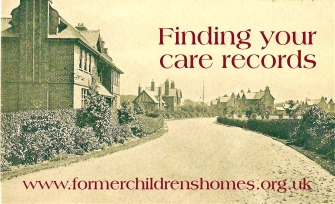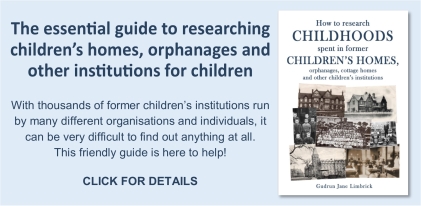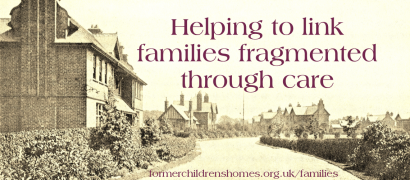The campaign to improve access to records
- great news!!
Other pages on this site you may find useful
Visit our new guidance on accessing your own records here
To access your adoption records, click here
For information on accessing records about other people (say, your relatives), click here
For decades, the process of applying for your own care records has been difficult, frustrating and inconsistent with some people getting full access to their care files, others getting redacted versions, and some getting nothing at all.
The Access to Records Campaign Group has been working to improve this for care leavers.
In December 2013, the Group achieved success with a promise from the Government to improve access to care and publish guidelines.
In May 1014, these guidelines were published as part of the Children Act 1989 Guidance and Regulations.
Key elements of the guidance:
- Local authorities must have clear, written policies and procedures about access to records
- Good practice in access to records should apply to any care leaver regardless of their age (a person's case record must be kept until their 75th birthday).
- Guidance must be given to care leavers about how they can access their records
- Local authorities must respond quickly to requests for information
- Sensitivity must be used and support must be provided
- Front-line staff need to be aware of the importance of the records
- If redactions do have to be made, clear explanations must be given as to why
- Care leavers should be informed of how to submit feedback and complaints about access to records
- Local authorities should support the care leaver to locate family members if required or signpost to relevant services
- The records that are given should be legible, coherent and well-ordered
- Local authorities should respond to requests for records from direct descendants of care leavers for information about family history.
The Care Leavers' Association (members of the Access to Records Campaign Group) had this to say about the developments:
"The guidance states that care leavers have a fundamental right to access information held on their care records and it is very clear that the principles and standards for good practice apply to all care leavers regardless of their age. There is an important reminder to the local authority that it should not withhold information about people in the care leaver’s family if the care leaver already knows or has this information, which has an impact on levels of redaction and means the case worker must engage the care leaver to identify what is already known and to identify any support needs.
"Experience tells us that there is a ‘post code lottery’ when it comes to care leavers getting a good service when seeking access to their records. This is not helped by the lack of knowledge across all relevant departments of local authorities’ regards data protection and the specific needs of care leavers. To address this we must develop a collaborative approach to raising awareness of this guidance and how it can help practitioners and their manager’s better support care leavers in accessing their files, whilst also ensuring user led perspectives are central to policy developments and implementation. We have assurances from government (assurances made in Parliament) that they would commit to a series of roundtable discussion to ensure the guidance is understood by relevant parties. We are currently working to develop these."
The guidance can be found here [external website] with the relevant section on Access to Records starting on page 39 (sections 4.21 to 4.37).
This, of course, is not the end of the story. The Access to Records Campaign Group will be working hard to ensure that these guidelines are put into use for months and years to come.

Gudrun Limbrick, founder of the formerchildrenshomes.org.uk website, has this to say:
"We get many enquiries each week from care leavers unsure of how they can look for their records. Many have left starting the search until they are in their 50s, 60s or 70s because they don't realise they have the right to ask, let alone know how to go about it. We very much welcome this guidance and hope that it will end the uncertainties and frustrations that have plagued care leavers' attempts to find out even the most basic information about their own histories".
CONGRATULATIONS
TO THE MEMBERS OF THE ACCESS TO RECORDS CAMPAIGN GROUP
FOR THEIR SUCCESS!








